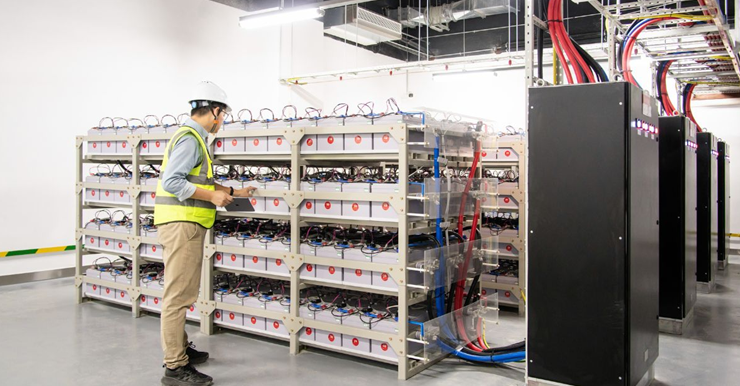Mistakes to Avoid When Choosing a Backup Power Supply

Power outages happen when you least expect them.
Your refrigerator stops humming, your office goes silent, and suddenly you're scrambling for flashlights. A backup power supply can save the day, but only if you choose the right one.
Here are the mistakes to avoid when choosing a backup power supply so you can stay powered up when the grid goes down.
Mistake 1: Overlooking Wattage Needs
The biggest blunder? Not calculating how much power you actually need.
Your backup generator needs to handle your building’s electrical load, or you'll be disappointed when half your appliances won't run. Start by listing what you absolutely must keep running during an outage, whether you have medical equipment that requires consistent power or massive server racks.
Calculating Your Needs
Add up these numbers before you shop.
Don't forget about startup power either. Some appliances need extra juice to get going. Your air conditioner might run on 3,000 watts but need 9,000 watts to start up.
If you’re worried about lights, remember that not every lighting solution you have in your business requires electricity. For example, there are many waysglow in the dark stickers enhance your aesthetics, but they do more; they can light up pathways when the workplace goes dark.
Mistake 2: Neglecting Fuel Options
Natural gas generators connect directly to your home's gas line. They're convenient because you don't need to store fuel, but they won't work if your gas service gets interrupted.
Diesel generators provide excellent power output but fuel can go bad over time.
Gasoline Generators and Uninterruptible Power Supplies
Gasoline generators are cheap upfront but gas spoils quickly and can be hard to find during emergencies. Think about what fuel you can reliably access in your area.
An Uninterruptible Power Supply (UPS) is a crucial component for ensuring continuous power during outages or electrical disturbances, and it does not run on fuel.
Unlike backup generators, which may take several seconds to activate after a power failure, a UPS provides instant power, bridging the gap before secondary power sources kick in. This makes a UPS especially valuable for protecting sensitive equipment like computers, servers, and medical devices from unexpected shutdowns or data loss. You can even find an outdoor AC UPS that will withstand the elements while providing you with consistent, reliable power.
Mistake 3: Skipping Professional Installation
YouTube videos make generator installation look easy, but electrical work isn't a DIY project. Improper installation can damage your building’s electrical system or create dangerous conditions.
A licensed electrician will install a transfer switch that safely connects your generator to your property’s wiring.
They'll also pull the necessary permits and make sure everything meets local codes. This protects you and your investment. Considering the complexity of certain UPS systems, especially for larger or more sensitive operations, relying on professionals can save significant time and prevent costly mistakes in the long run. Investing in expert installation ensures that your UPS system performs optimally.
Power Through Outages With Confidence
Avoiding these mistakes when choosing a backup powersupply will help you find a system that actually works when you need it.
Take time to research before you buy. A good backup generator is a long-term investment that should serve you for many years. Don't let a hasty decision leave you powerless when the next storm hits.